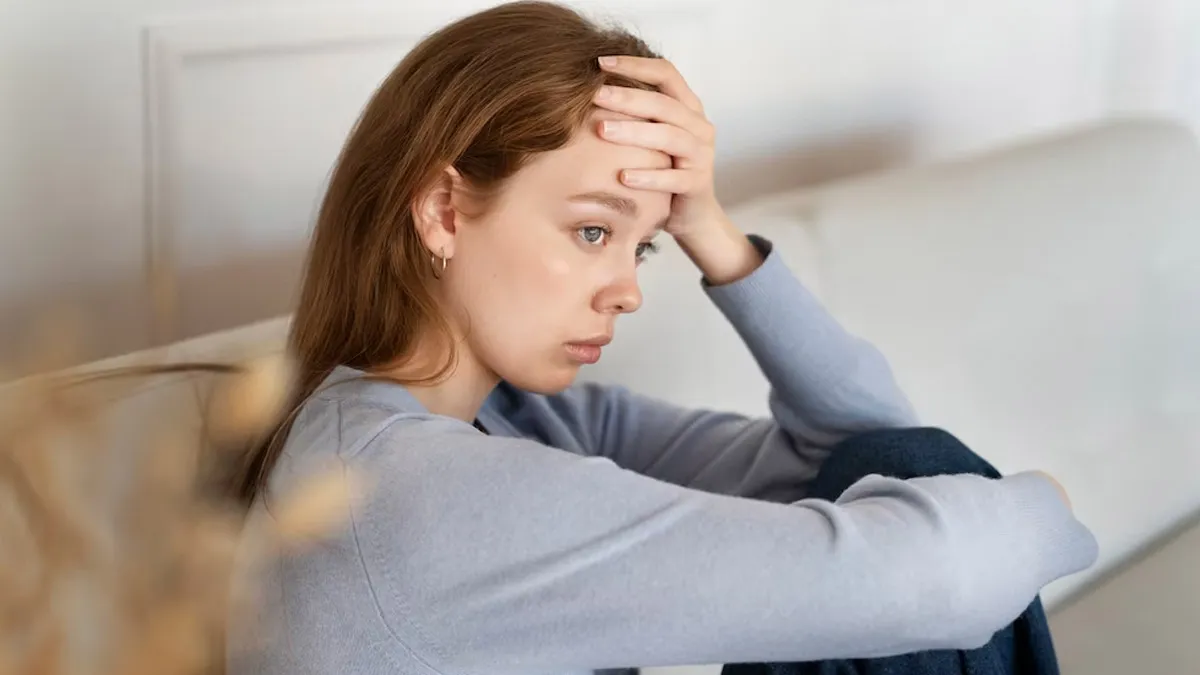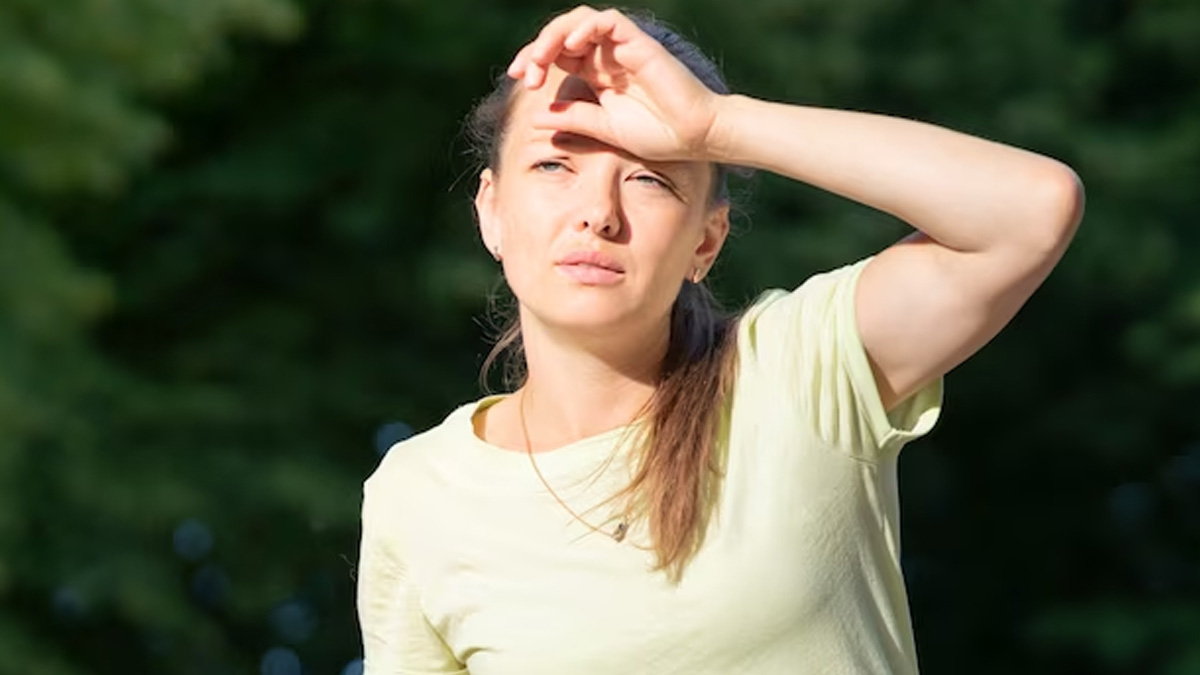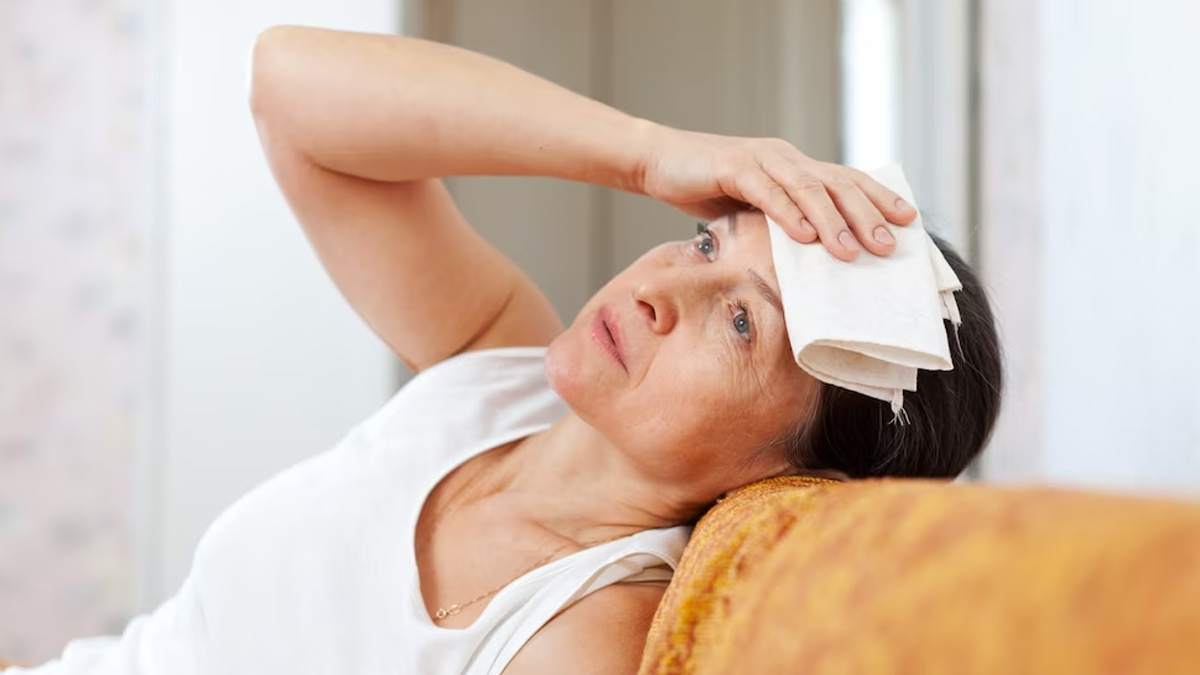
The current sweltering summer days aren't just making you sweat; it might also be fueling your anxiety. While we often associate anxiety with mental and emotional triggers, emerging research and anecdotal evidence suggest a significant link between high temperatures and increased feelings of unease. So, can a hot day really make you more anxious? Let's find out the science and explore what you can do to stay cool, calm, and collected.
Table of Content:-
CHECK YOUR
MENTAL HEALTH

Body's Response: More Than Just Sweat
When the mercury rises, your body kicks into high gear to regulate its internal temperature. This involves a cascade of physiological changes: your heart works harder to pump blood to the skin for cooling, you sweat to release heat, and your electrolyte balance can shift. These physical responses, while essential for survival, can inadvertently mimic some of the symptoms of anxiety.
Think about it: a racing heart, shortness of breath, dizziness, and even muscle tension are common to both heat stress and anxiety attacks. This overlap can be confusing and even exacerbate existing anxiety. As Dr Shrey Srivastav, Senior Consultant and General Physician, Sharda Hospital - Noida, explains, "The body's stress response to heat can trigger similar physiological pathways as the stress response associated with anxiety. This can make individuals more vulnerable to experiencing or intensifying anxious feelings."
Hormonal Connection: A Delicate Balance
Beyond the immediate physical sensations, heat can also influence our hormonal balance, which plays a crucial role in mood regulation. Studies have shown that exposure to high temperatures can lead to increased levels of cortisol, the body's primary stress hormone. Elevated cortisol is a well-known contributor to anxiety and can make individuals feel more on edge, irritable, and restless.
Furthermore, dehydration, which is more likely in hot weather, can also impact brain function and contribute to feelings of anxiety, confusion, and fatigue. Maintaining proper hydration is therefore not just about physical well-being but also about mental equilibrium.

Also Read: The 80/20 Rule For Dieting: Expert Explains This Sustainable Approach To Nutrition
Who is Most Vulnerable?
While anyone can experience increased anxiety in the heat, certain individuals may be more susceptible:
Those with pre-existing anxiety disorders: The physical discomfort and physiological changes associated with heat can act as triggers for individuals already prone to anxiety.
Older adults: Their bodies may have a reduced ability to regulate temperature efficiently, making them more vulnerable to heat stress and its psychological effects.
Individuals with certain medical conditions: Conditions affecting the cardiovascular or nervous system can be exacerbated by heat, potentially increasing anxiety levels.
People taking certain medications: Some medications can interfere with the body's ability to regulate temperature or have side effects that mimic anxiety symptoms.
Beyond the Physical: The Environmental Impact
It's not just our bodies reacting to the heat; the environment itself can play a role. Extreme heat events can be stressful in their own right, causing worry about health, safety, and the potential for disruptions in daily life. News reports about heat waves and their impact can also contribute to a general sense of unease and anxiety within the community.

Also Read: Expert Shares To Eat THIS and Avoid THAT For Better Mental Health! Find Out What Here
Staying Cool and Calm: Practical Strategies
The good news is that there are several proactive steps you can take to mitigate the link between high temperatures and anxiety:
Stay Hydrated
Drink plenty of water throughout the day, even if you don't feel thirsty. Avoid sugary drinks and excessive caffeine, which can dehydrate you.
Seek Cool Environments
Spend time in air-conditioned spaces whenever possible, whether it's your home, a library, or a shopping mall.
Dress Appropriately
Wear loose-fitting, light-colored clothing made from breathable fabrics.
Time Outdoor Activities Wisely
Avoid strenuous activities during the hottest parts of the day. Opt for early morning or late evening when temperatures are cooler.
Take Cool Showers or Baths
These can help lower your body temperature and provide a sense of relief.
Practice Relaxation Techniques
Incorporate mindfulness, deep breathing exercises, or meditation into your routine to help manage overall anxiety levels.
Limit Exposure to Heat-Related News
If you find that news about heatwaves increases your anxiety, try to limit your exposure.
Listen to Your Body
Pay attention to early signs of heat stress, such as dizziness, fatigue, or headache, and take steps to cool down immediately.
Seek Professional Help
If you find that your anxiety is consistently worsening, regardless of the temperature, don't hesitate to reach out to a mental health professional for support and guidance.
Bottomline
The connection between high temperatures and anxiety is a complex interplay of physiological responses, hormonal shifts, and environmental factors. While a hot day might not directly cause an anxiety disorder, it can certainly exacerbate existing anxieties and make individuals feel more vulnerable. By understanding this link and implementing practical strategies to stay cool and calm, you can navigate the summer heat with greater ease and prioritise both your physical and mental well-being. So, this summer, remember to stay hydrated, seek shade, and nurture your inner peace – your mind and body will thank you for it.
Also watch this video
How we keep this article up to date:
We work with experts and keep a close eye on the latest in health and wellness. Whenever there is a new research or helpful information, we update our articles with accurate and useful advice.
Current Version